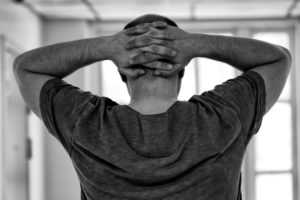When asked to describe 2020 thus far, many have used the words uncertain, divisive, and disruptive. When I asked my friend this question, her response summarized it sufficiently: wounding.
 Now over 200,000 people have died from COVID-19 in the United States, almost 70 times more than those who died in the September 11 attacks and more than Vietnam, Korean, and Iraq wars combined. Even if we avoided the virus, we have experienced its wounding effects. In March, the Dow Jones recorded its worst point drops since the Great Depression. By July, 48 million people had filed for unemployment. Mental health professionals are seeing surges in people suffering from their mental and emotional well-being. Wildfires still rage on the West Coast. Viral videos of racial injustice prompted peaceful protests, demonstrations, riots, and looting in cities across the country. The nation is trying to reckon with something that African-Americans have long realized: racism has deeply wounded our country. All of this has led to a palpable us-versus-them mentality, especially as we approach a polarized presidential election.
Now over 200,000 people have died from COVID-19 in the United States, almost 70 times more than those who died in the September 11 attacks and more than Vietnam, Korean, and Iraq wars combined. Even if we avoided the virus, we have experienced its wounding effects. In March, the Dow Jones recorded its worst point drops since the Great Depression. By July, 48 million people had filed for unemployment. Mental health professionals are seeing surges in people suffering from their mental and emotional well-being. Wildfires still rage on the West Coast. Viral videos of racial injustice prompted peaceful protests, demonstrations, riots, and looting in cities across the country. The nation is trying to reckon with something that African-Americans have long realized: racism has deeply wounded our country. All of this has led to a palpable us-versus-them mentality, especially as we approach a polarized presidential election.
Pain and suffering have always been present; but this year they have intensified, accelerated, and become more deeply divisive. How can Christians lead and serve in our astoundingly complex reality?
In times of tragedy, the late children’s television personality Fred Rogers is often quoted: “When I was a boy and I would see scary things in the news, my mother would say to me, ‘Look for the helpers. You will always find people who are helping.’” We’ve all seen and experienced scary things—and we will continue to see and experience scary things. But what if now is the time the world is looking for the healers? What if the helpers are primarily healers?
News brought to you by Christianity Today




